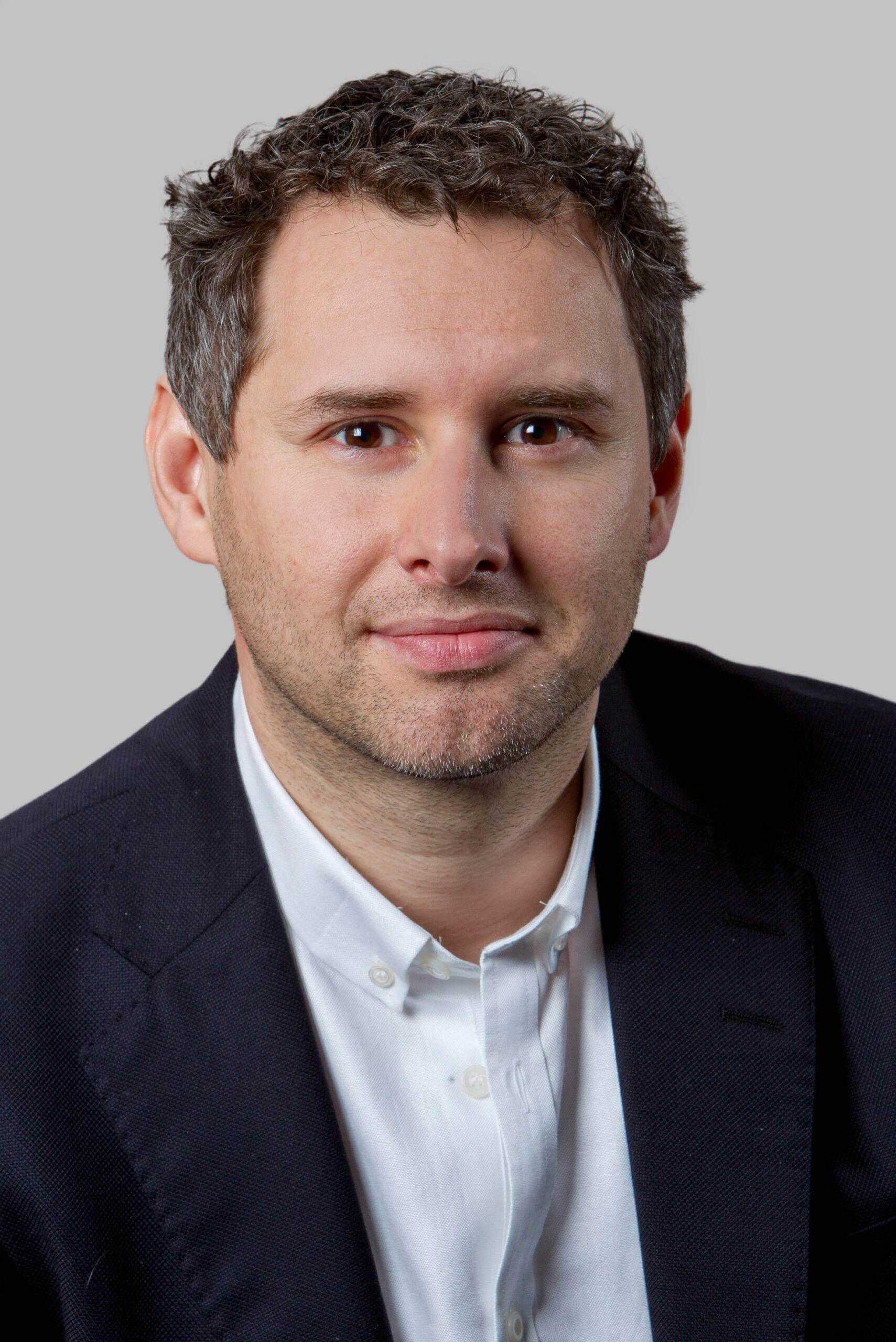Damien J. McCann from Capital Group is our Fund Manager of the Month

20 SEPT, 2023
By Constanza Ramos

Damien J. McCann is a fixed-income portfolio manager at Capital Group. He has 23 years of investment experience, all with Capital Group. Earlier in his career at Capital, he was a fixed-income investment analyst and covered energy, leisure and lodging, and rails. He holds a bachelor’s degree in business administration with an emphasis on finance from California State University, Northridge. He also holds the Chartered Financial Analyst® designation. Damien is based in LAO-W.
Why did you decide to go into the financial sector, did you have other vocations?
I always had an interest in business, but it took some time to figure out where in business I should focus. As a teenager, I was an entrepreneur. In the first two years of college, I studied accounting. Then I switched to finance and decided to focus on investing, after reading several books about Warren Buffett's approach to stock picking.
How should investors orient their portfolios in this environment?
A more active defensive strategy can help investors avoid elevated risks. As we move into the latter months of 2023, we believe there is likely to be more nuanced in returns across fixed-income sectors. This was demonstrated by the recent volatility associated with the instability in the banking sector when credit spreads among financial issuers and higher-yielding sectors widened. Although now credit spreads are tighter than at the beginning of the year. In such an environment, taking a flexible multi-sector approach could help investors better capture the income-generating power of bonds as well as harness the benefits of diversification to deliver reliable income streams.
The Capital Group Multi-Sector Income Fund (LUX) (MSI) combines the power of four fixed-income credit sectors: US Investment Grade and US High Yield corporate bonds, Emerging Market Debt, and Securitised credit. The fund has been designed to be diversified, flexible, and balanced.
What can your fund contribute that others cannot in the current market conditions?
Whilst the investment case for fixed income has dramatically improved in comparison to 2022, the outlook from here is still uncertain as it is not clear if central banks will keep rates higher for longer, or pivot and cut rates if recession materializes. In this environment, an active, flexible investment approach within a balanced risk profile may be key to delivering attractive total returns mainly from income. MSI given its flexibility and active approach, is well placed for this uncertainty.
We have the flexibility to change, or ‘tilt’, the portfolio to reflect our latest investment views. MSI’s assets are dynamically managed within set guidelines in order to take advantage of opportunities and mitigate risks where possible. The fund is designed to provide a high level of current income and potential capital appreciation. Apart from diversification and flexibility the fund also offers balance thanks to a clear framework for a more balanced risk profile and resilience aiming to generate attractive and reliable income.
Can you give us an example of a position that you have held for a long time in your portfolios and why?
Our focus in the credit portfolio is currently on defensive areas of the market with a preference for less-cyclical sectors such as pharmaceuticals. Historically this sector has outperformed in periods of market weakness; One of the issuers we like within this space is Amgen as it offers attractive spread tightening potential given its deleveraging story, with the added bonus of being a defensive credit.
Overall, I am conservatively positioned given uncertainty remains elevated and spreads have tightened quite significantly. I am cautious and underweight in lower-quality sectors such as CCC-rated companies. I am more comfortable in higher quality sectors such as investment grade corporates and securitized credit in particular. While conservatively positioned, I’m not hiding in a bunker. Spreads aren’t particularly wide on average, but there has been some divergence in spread changes at the sector level. This is creating opportunities to invest in certain parts of the credit market at cheap levels.
I am also seeing interesting opportunities emerge in conduit CMBS at the AA and A levels, depending on the deal. This area of the market is offering attractive yields and in some cases, the spreads available are better than I can get in corporate high yield. I am also finding select opportunities in high-yield corporates that have high exposure to CRE and have sold off as the broader CRE sector has come under pressure. However, if you look closely at the underlying assets, these are often good properties so you can be comfortable holding the bonds. The key, as ever, is thorough, fundamental bottom-up research.
Even if we’re headed into a recession, I still want to own investment-grade corporates as part of a diversified portfolio. Investment grade spreads would widen in a recession, but because it’s a higher-quality asset class that widening is unlikely to be dramatic. Additionally, treasuries would very likely rally in a recession, perhaps significantly. At the sector level, we are finding good value in investment-grade utilities, banks, and pharmaceuticals.
What ratios does a company have to meet to be part of your portfolio?
We invest issuer-by-issuer, and where we believe outcomes could be better than market pricing indicates. For example, in the high-yield space, we currently find opportunities in high cash-generative and capital-lite financial companies that could benefit in a rising rate environment, such as exchanges and brokerages that rely more on transaction-based revenue streams. The recurring revenue models from selected issuers within this segment would have the potential to do better than the more cyclical issuers in a soft economy or a rising rate environment.
If you had to define yourself in 3 words, what would they be and why?
Persistent. Markets are constantly changing and require a relentless focus on finding opportunities.
Balanced. I try not to get too hot or cold on investment views. It is easy to overreact or underreact market events. Truth, which is eventually revealed, is often in the middle.
Introvert. For investors, listening is much more important than talking.
What is your favorite thing to do in your free time?
Spending time with my wife and children. We enjoy going to movies, walking our dogs, bowling, and baseball games.


